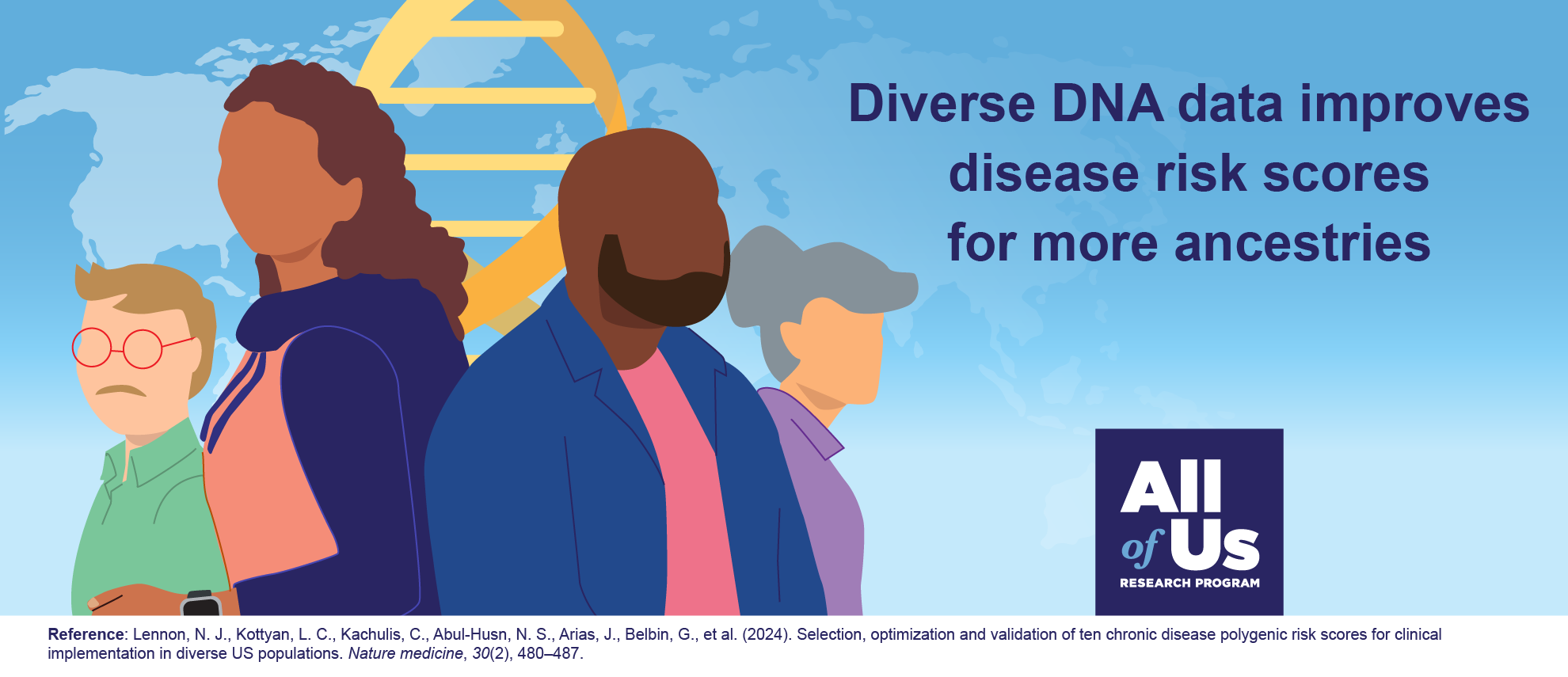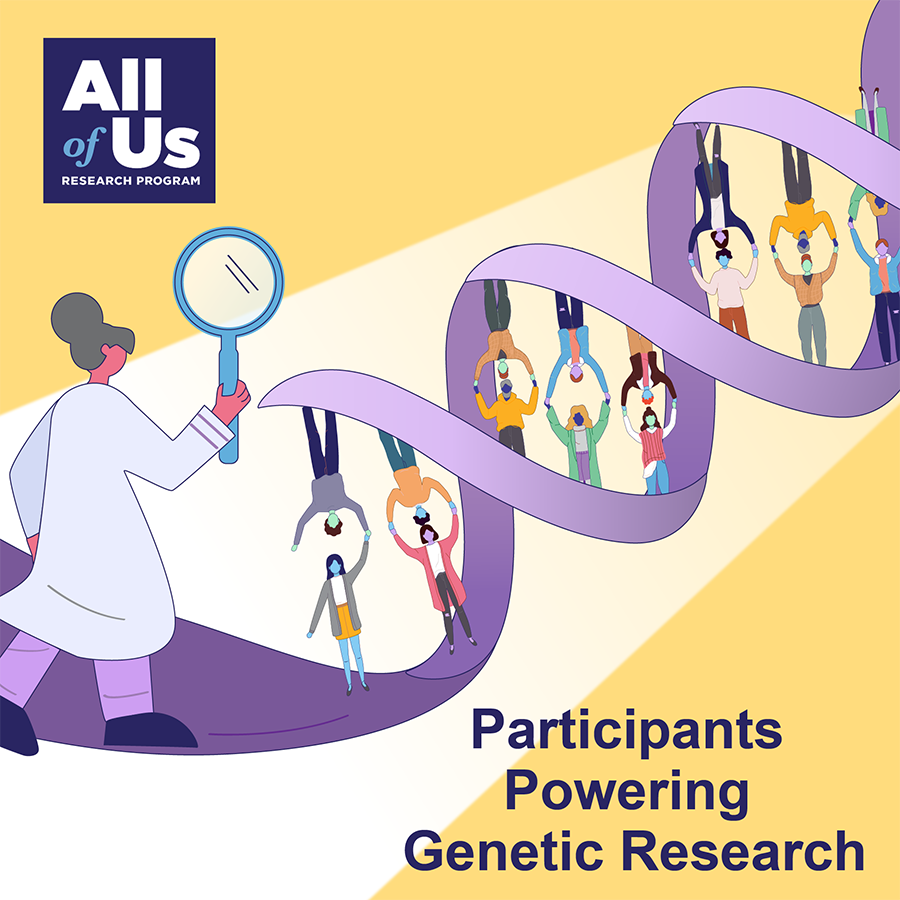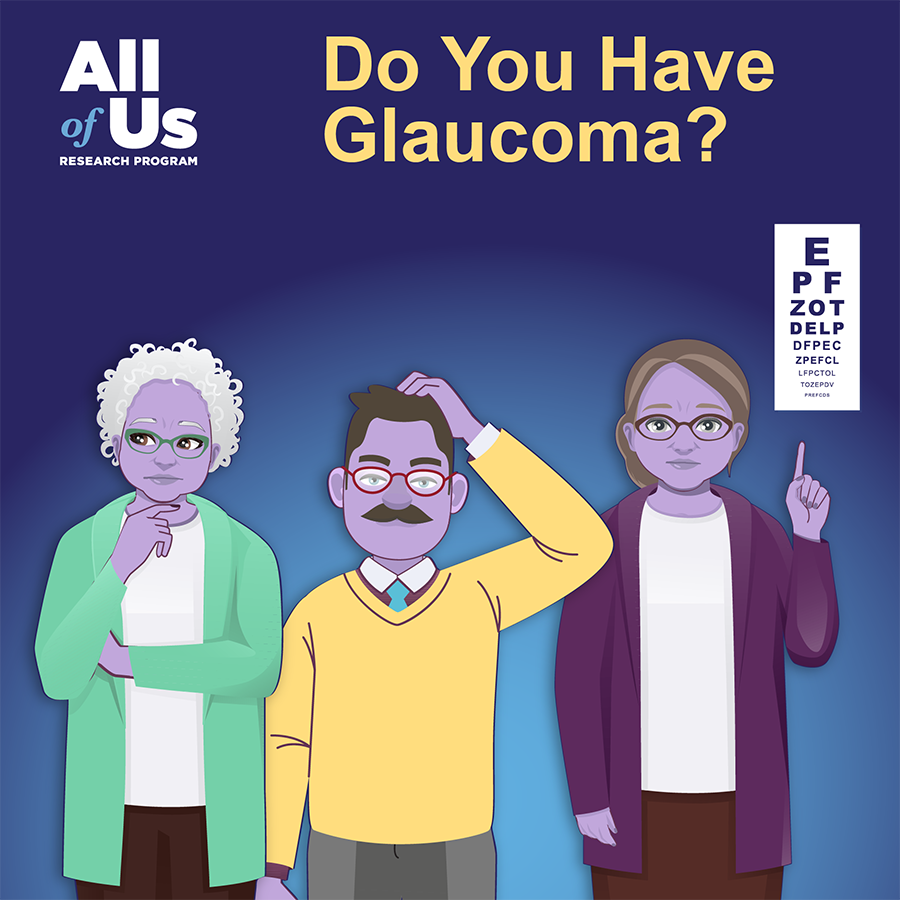
Key Points
- Health care providers hope to use polygenic risk scores to help determine if you are at risk for a health condition that can be difficult to predict.
- Currently, most polygenic risk scores are more accurate for people of European ancestry than for people from other backgrounds.
- Researchers applied All of Us data to adjust polygenic risk scores for 10 common conditions so that the scores are more accurate for individuals from many ancestries.
Researchers are developing a tool that could use a person’s DNA to determine their genetic risk for complex health conditions.
This tool is called the polygenic risk score. Poly- means “many,” and -genic means “involving genes.” Polygenic risk scores are measures of how likely you are to get particular conditions—your risk—based on changes in multiple genes in your DNA.
So far, these scores are better at estimating risk for people of European ancestry than for people from other backgrounds. But researchers were able to use the diverse genetic data in All of Us to adjust the scores for 10 health conditions so that they are accurate for people of different ancestries. This study was published in Nature Medicine.
Importance of Polygenic Risk Scores
The genetic cause of some conditions is fairly straightforward: They are closely linked to changes (or variants) in a particular gene. For example, CFTR gene variants are the main cause of cystic fibrosis. Health care providers can often use genetic tests to learn whether someone has these kinds of conditions.
But common and complex conditions, such as type 2 diabetes, are shaped by a combination of factors. These include social and environmental factors as well as changes that affect hundreds or thousands of genes. These complex conditions are much harder to predict. Polygenic risk scores can uncover the genetic piece of a person’s risk for these kinds of conditions.
Finding out early about your risk for a health condition lets you take action to manage or prevent it before it becomes a serious problem.
Adjusting Risk Scores
To calculate polygenic risk scores, researchers compare the DNA of many people—some with the condition, and some without it. At first, most DNA data used for these calculations was from people of European ancestry, so the scores were most useful for people with that background.
But researchers want to make sure that scores will be accurate for people of any genetic ancestry. In this study, they started with the risk scores for 10 complex conditions:
- Asthma
- Breast cancer
- Chronic kidney disease
- Coronary heart disease
- Heartbeat abnormality (atrial fibrillation)
- High cholesterol (hypercholesterolemia)
- Obesity
- Prostate cancer
- Type 1 diabetes
- Type 2 diabetes
Looking at DNA and health information shared by more than 13,000 All of Us participants, the researchers adjusted the polygenic risk scores so that they accurately estimate risk in people from many ancestry groups.
Bringing Polygenic Risk Scores to Health Care
The researchers in this study also developed and tested a process to share polygenic risk scores with patients. While these scores are not yet used in doctors’ offices, this work helps move health care closer to using accurate polygenic risk scores in the future.
As All of Us and other datasets continue to grow, researchers will be able to adjust polygenic risk scores for more health conditions. With more diverse genetic data, these scores will become more accurate for any patient, no matter their ancestry. Polygenic risk scores that work for individuals from diverse backgrounds can help reduce health differences across populations. Such scores mean everyone has access to accurate information about their health.
Interested in All of Us?
- Read more research highlights.
- Learn about participation in the program.
Conduct research with All of Us
- Learn about opportunities for researchers.
- Find funding to support research using All of Us data.
- See more research projects made possible by All of Us data and tools.


